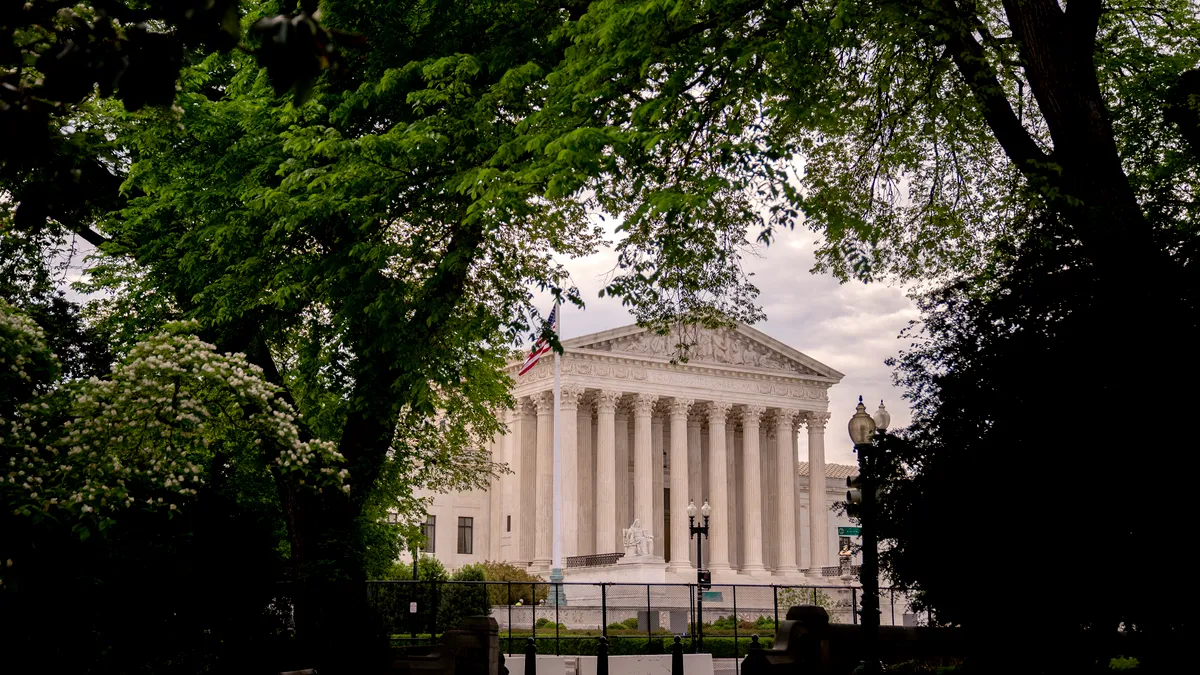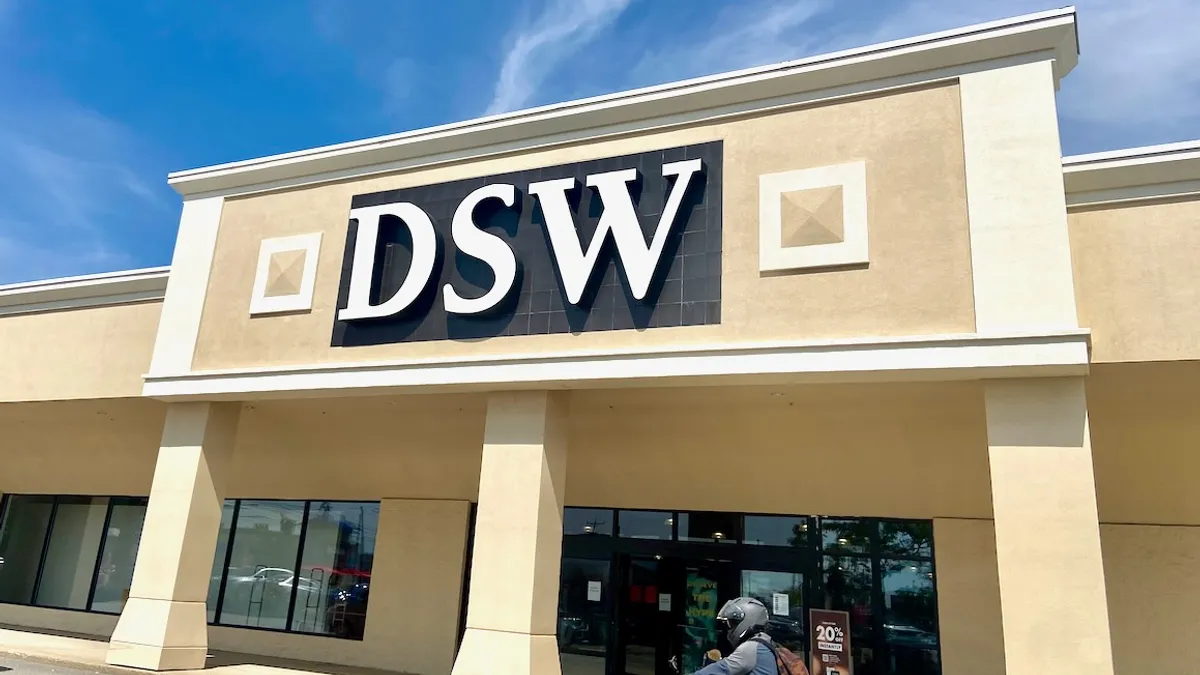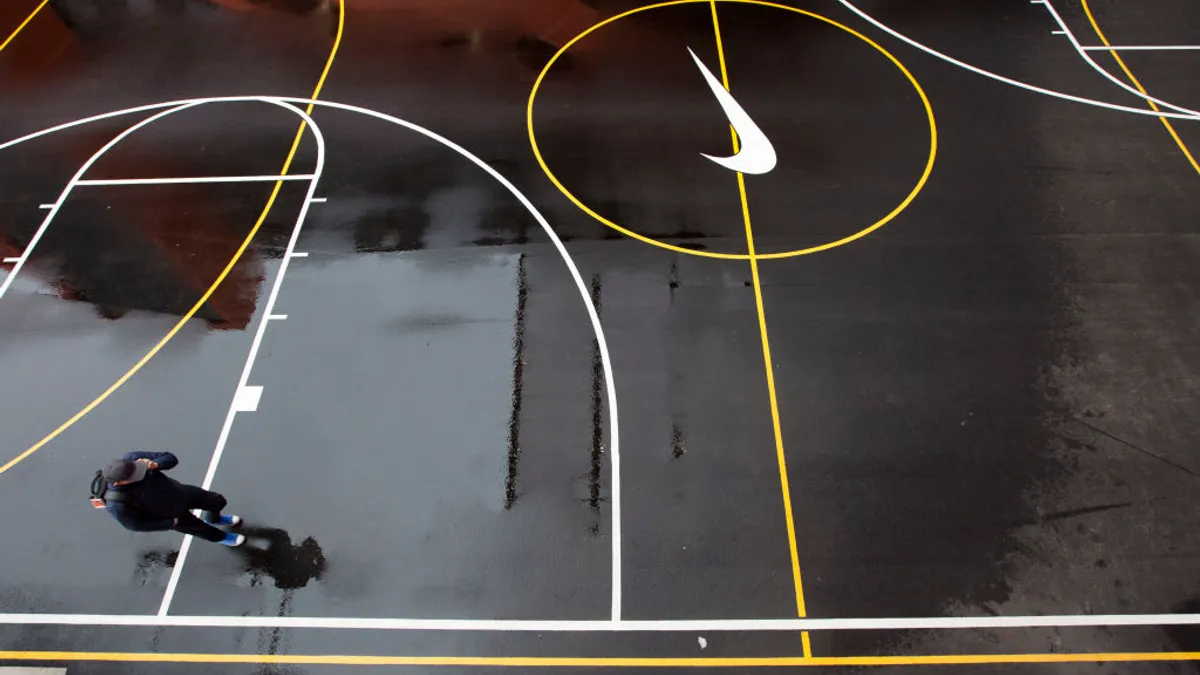In a 6 to 3 decision, the U.S. Supreme Court on Thursday blocked President Joe Biden's vaccine-or-test requirement for companies with 100 or more employees, effectively ending its chances.
The high court agreed with the argument, brought forth by the National Retail Federation and others fighting the rules, that because anyone can fall ill with COVID-19 anywhere — at school, at work, at a store — it's not a workplace safety issue, and therefore can't be regulated by the Occupational Safety and Health Administration, at least not as broadly as OSHA applied it.
Technically, the ruling sends the case back to the 6th Circuit, but this mandate is effectively buried, according to Jonathan Hyman, an attorney at law firm Wickens Herzer Panza who specializes in management-side labor and employment law. In a statement Thursday, the NRF said that "the Supreme Court's decision to stay OSHA's onerous and unprecedented [Emergency Temporary Standard] is a significant victory for employers."
Still, the Supreme Court also signaled that there is a place for a vaccine mandate in certain workplace environments, and that could include some retail companies, possibly even stores, experts say.
Most recently, in a 5 to 4 vote also unveiled Thursday, the Justices allowed the Biden administration's vaccine requirement for healthcare workers, for example. The court has also let stand some state requirements, according to Brent Hockaday, a partner at law firm Bell Nunnally, who specializes in workplace safety and health, among other employment issues.
'Targeted regulations are plainly permissible'
Moreover, language in the very opinion that reinstated the stay against the emergency OSHA rules suggests that other workplaces with an elevated risk for virus transmission could yet be required to have employees provide proof of vaccination or get tested, Hockaday and Hyman noted.
"[I]mposing a vaccine mandate on 84 million Americans in response to a worldwide pandemic is simply not 'part of what the agency was built for,'" the Supreme Court majority wrote. "That is not to say OSHA lacks authority to regulate occupation-specific risks related to COVID–19. Where the virus poses a special danger because of the particular features of an employee's job or workplace, targeted regulations are plainly permissible. We do not doubt, for example, that OSHA could regulate researchers who work with the COVID–19 virus. So too could OSHA regulate risks associated with working in particularly crowded or cramped environments."
That could include environments like those found in stores, Hyman said by phone. Mitigating spread of the virus was the rationale behind the temporary store closures of 2020, and several retailers have continued to close some locations due to the pandemic. Even this year, Walmart, Macy's and Apple have shuttered stores or limited hours as the highly contagious omicron variant leads to surging cases and hospitalizations in the U.S.
"If OSHA said the rule applies to supermarket employees, or meatpacking employees, or restaurant and service industry employees and other industries that we think of as kind of high risk for COVID exposure — where it's difficult to put other mitigation measures in place, because it's hard to maintain distancing and other things — I think we would have seen a different result here," Hyman said.
On Thursday, U.S. Secretary of Labor Marty Walsh issued a statement calling the ruling a "major setback to the health and safety of workers across the country" and urging companies to either vaccinate their workers or test them weekly for COVID-19 in order to ensure their workplaces are safe. That echoes the Supreme Court's minority from Justices Stephen Breyer, Sonia Sotomayor and Elena Kagan, who noted that COVID-19 "poses a 'grave danger' to millions of employees."
"As of the time OSHA promulgated its rule, more than 725,000 Americans had died of COVID–19 and millions more had been hospitalized," they wrote in their dissent. "Since then, the disease has continued to work its tragic toll. In the last week alone, it has caused, or helped to cause, more than 11,000 new deaths. And because the disease spreads in shared indoor spaces, it presents heightened dangers in most workplaces."
Clarity, for now
Thursday's ruling doesn't prevent companies themselves instituting mandates, Hockaday noted. Several retailers have required corporate employees to be vaccinated. Few, if any, have applied that to store workers, though some require that masks be worn by store employees, customers or both.
"My guess is what's driving that is either a concern or the reality that it's just hard to find workers right now," Hyman said, though he noted that some workers are avoiding workplaces with elevated COVID risk.
Deciding whether or how to apply a vaccine requirement entails several considerations, including state and local laws, employment laws, and individual company culture and circumstances, according to Hockaday.
"I'm not a doctor, but, you know, you're probably at higher risk of contracting COVID doing face-to-face business with customers off the street than you would be in an office where you can potentially close the door," he said. "What this ruling tells you is what you are not required to do from a federal standpoint. I think it gives you clarity on that, for now. But you should still look at state requirements, and then, obviously, you're still under an obligation to have a healthy and safe work environment for your workforce. So you need to take that into consideration."






















